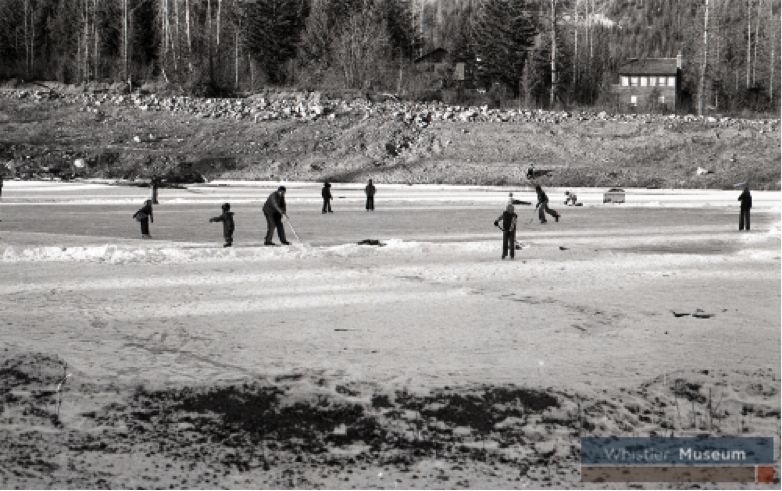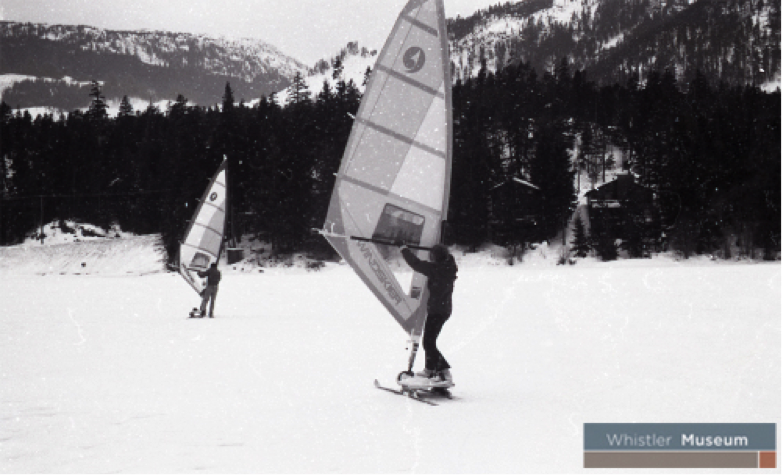WREC at 40: How has Sport Changed in Whistler?

Continuing our WREC at 40 series, we take a look at how sport has changed in Whistler over the last 40 years. Today, Whistler is a number one year-round destination for sports enthusiasts and adventure seekers.
Skiing & Snowboarding
It’s safe to say that skiing has come a long way since 1978, from the clothes we wear to the equipment we use, the sport has seen many changes over the last 40 years. Perhaps the most notable change on the mountain is the introduction of snowboards. It’s hard to believe that not even 40 years ago snowboarding was just getting started in terms of reaching the mass market!
The idea of the modern snowboard was first developed in 1965 however back then it was known as the ‘snurfer’. By the 1980’s, snowboarding had reached the mass market and snowboarders were proving they deserved equal rights on the slopes to both the ski resorts and the International Olympic Committee. While snowboarding was looked down on and banned in many resorts, after a hostile introduction, the sport was finally welcomed on Whistler mountain in 1990. The resort embraced the idea and the culture by building snowboard parks and encouraging the development of the sport.

With all the hype around snowboarding and the innovative new tricks they were doing, the skiers of Whistler didn’t sit on the sidelines for long. Unlike snowboards at the time, skis were not built to take off or land backwards. So, a group of Whistler locals led by “The Godfather of Free Skiing”, Mike Douglas, began to develop a new concept; twin tip-skis. Much like a snowboard, twin-tip skis curl up at the front and back allowing skiers to be more creative on the slopes.
Today, during Winter, Whistler Blackcomb offers skiers and snowboarders over 200 marked runs, 8,171 acres of terrain, 16 alpine bowls, three glaciers, receiving on average over 1,165 centimetres of snow annually and one of the longest ski seasons in North America. The resort has seen huge developments this past 40 years. Most recently the mountain was acquired by Vail Resorts in a $1.4-billion friendly takeover in August 2016. With plans to invest $66 million in on-mountain infrastructure including a new gondola.
Mountain Biking
Nearly 20 years of mountain biking has seen The Whistler Mountain Bike Park become the number one lift-accessed bike park in the world. Technology has played a major role in the evolution of mountain biking. Hydraulic brakes, front and rear suspension, larger wheel diameter, and carbon framesets have offered more participants the ability to ride more technically challenging terrain.

Through the evolution of mountain biking, several distinct disciplines have emerged such as Downhill, Cross Country, Free Ride and All Mountain. With more than 4,926 vertical feet of lift-serviced downhill trails, Whistler is the spot for biking enthusiasts. The Bike Park first opened in 1999 with the Fitzsimmons Zone, the Whistler Mountain Bike Park now features four distinct zones with over 80km of trail to explore.
It’s no wonder the Whistler Mountain plays host to the ultimate celebration of mountain biking. The Crankworx World Tour travels around the world before arriving back home to Whistler for the 15th year of Crankworx competition on August 10th – 19th.
General Sports
The Whistler community offers an array of year-round sporting activities for all the family.
The lakes of Whistler have been a place of community gathering in both the Winter and Summer months over the last 40 years. During Winters, the lakes are home to the time-honoured Canadian tradition of ice hockey in addition to cross-country skiing and snowshoeing. The people of Whistler have always been creative in the sports they play including wind skiing on Alta Lake during the 1980’s, while during Summer the lakes of Whistler have seen the development of both the Whistler sailing and rowing clubs.

Whistler is an international hub of unique and diverse people from all corners of the world. They have brought a variety of international sports to the young community including Rugby and Aussie Rules Football. The last 40 years have also seen the development of new sporting activities such as wakeboarding on Whistler’s lakes or navigating one of Whistler’s unique disc golf courses. The people of Whistler have had a great impact on the development of new sports. Particularly in the Stand Up Paddle Boarding community where our very own agent, Steve Legge, established Kahuna Paddle Boards in 2008.
Events
Throughout the years, Whistler has been a host to some of the most amazing and challenging sporting events including the 2010 Winter Olympics. The resort has not only played host but also created infamous sporting celebrations. Following a 15 year hiatus, The Saudan Couloir Ski Race Extreme returned to Whistler mountain this past April, a highlight of the World Ski and Snowboard Festival. And on July 29th IRONMAN Canada will return to the Whistler valley, where top athletes will be put to the test on a 2.4-mile swim, a 112-mile bicycle ride and a full marathon through Whistler’s beautiful and challenging terrain.


